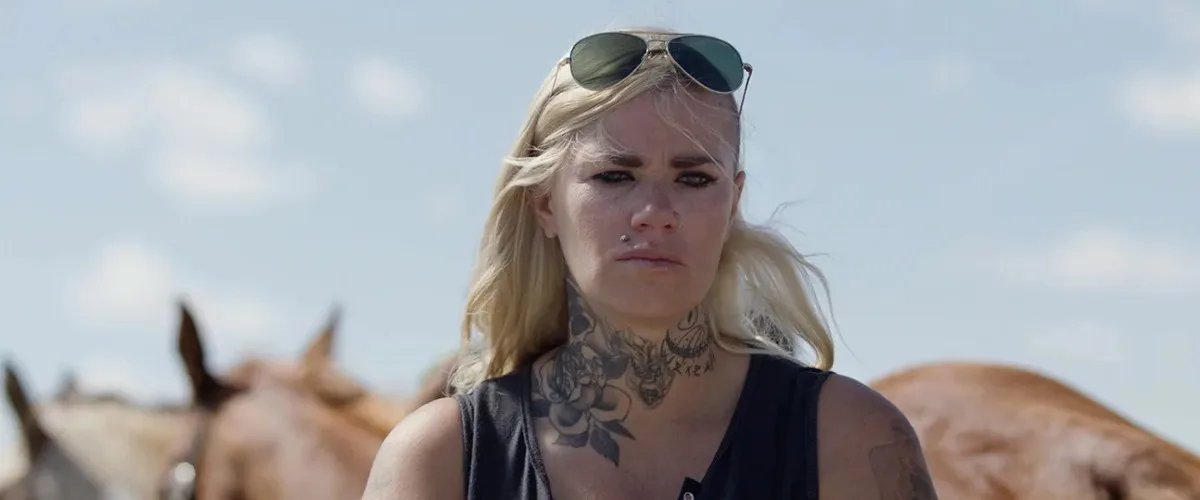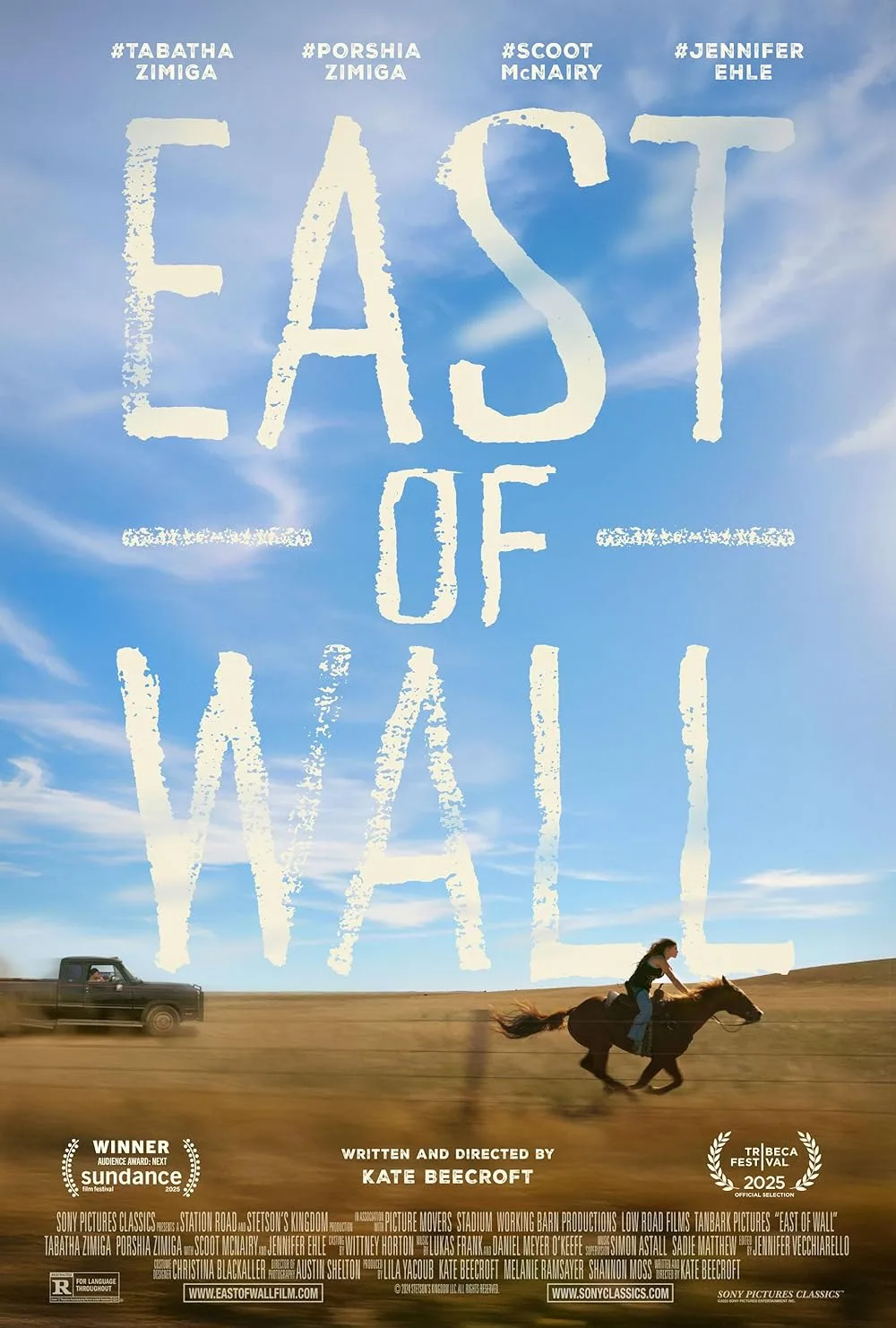Director Kate Beecroft’s Sundance darling “East of Wall” is a stunning portrait of the American West. The film follows Tabatha Zimiga, who plays a version of herself. She’s a stern, reserved rancher and horse trainer who cares for her daughter Porshia and a gaggle of other teens who have nowhere else to go. They help her care for and sell the horses, coming of age out near the Badlands.
Tabatha’s knowledge of horses is “witchy” and unmatched in the community around her, and Porshia is a promising rodeo rider, winning awards back-to-back. But despite each of their displays of expertise, there’s always a melancholy tone that underlines their success. Zimiga’s austere presence, framed by black-lined eyes and a shaved side, is both fitting to her frame of mind while being misleading to the tenderness she contains beneath the veil. Porshia, with a matching haircut that echoes an equestrian mane, is not simply an angsty teen, but an angry one. We come to find that the hardened facades of mother and daughter are a result of unaddressed pain.
“East of Wall” takes place in the years following the death of Tabatha’s husband. As she and Porshia collide with their unresolved grief, she is forced to shoulder the financial insecurity of managing her property and feeding the mouths of the children she’s raising as her own. Enter Roy Waters (Scoot McNairy), a well-meaning, also-grieving rancher from Fort Worth, who takes interest in the duo. With plenty of money to flex, and the duo’s potential gleaming in his mind’s eye, he offers a stability that Tabatha isn’t sure she’ll find elsewhere.
Since its festival debut, “East of Wall” has garnered a lot of comparisons to Chloe Zhao’s “Nomadland,” and the parallels are not mute. Both are moving docudramas of life in the Dakotas that turn the expansive landscape itself into a character of its own: one that breathes life and wonder. Beecroft met her subjects on an accidental wrong turn that gifted her lifelong friendships and three years of life on Zimiga’s ranch, and this genuine intimacy supersedes the boundaries of the screen. Meanwhile, DP Austin Shelton’s photography is painterly, capturing topography and portraiture with equivalent romanticism and awe.
“East of Wall” is a slice-of-life picture that documents its subjects while picking apart life in the West. Tabatha, Porshia, and company are rendered small when viewed against the inclines and canyons of the Badlands and far out treks of endless horizon. The greatness of the landscape breeds a sense of sobering humanity and heartwarming community. When we watch Porshia ride on Bingo, reaching 45mph speeds, it’s invigorating. We see, precisely, the special nature of what Tabatha has built and maintained.
Cherishing this is what makes the character of Roy Waters just as compelling. He presents the idea of buying the ranch while letting the group maintain the life they’ve built there. It’s an offering of financial security, but also an emotional bastardization. He’s not a villain, nor a savior; he helps the group sell their horses, but the knowledge of his eventual expectations sours the success. The naturalness, freedom, and intimacy that oozes from “East of Wall,” its characters, and its setting make the ranch something that we as viewers see as worth preserving. We hold it just as sacred. Whether to protect the security or the sanctity of the land then becomes the impossible question, and watching it all unfold is the emotional core.
“East of Wall” pits grief against growth and puts on display the fact that there’s no “getting over,” only moving through. With almost a full cast of first-time actors operating like pros, the docufiction element of the story is wholly immersive. The lines between reality and fiction blur so effectively that all we viewers can manage is simply to feel.




















